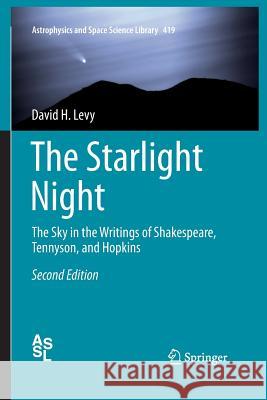The Starlight Night: The Sky in the Writings of Shakespeare, Tennyson, and Hopkins » książka
topmenu
The Starlight Night: The Sky in the Writings of Shakespeare, Tennyson, and Hopkins
ISBN-13: 9783319371016 / Angielski / Miękka / 2016 / 214 str.
Kategorie BISAC:
Wydawca:
Springer
Seria wydawnicza:
Język:
Angielski
ISBN-13:
9783319371016
Rok wydania:
2016
Wydanie:
Softcover Repri
Ilość stron:
214
Waga:
0.35 kg
Wymiary:
23.39 x 15.6 x 1.32
Oprawa:
Miękka
Wolumenów:
01
Dodatkowe informacje:
Wydanie ilustrowane











